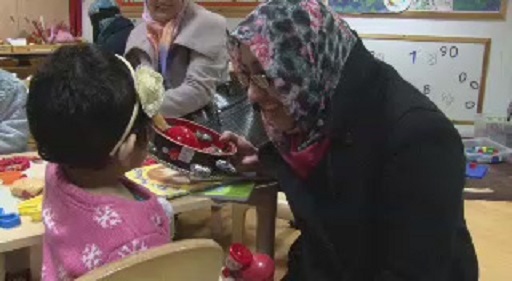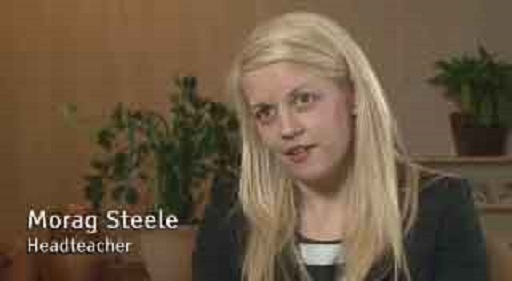4.1 Views on play and creativity
Throughout this course you have been asked to think about your own understanding, values and beliefs about children’s play and creativity. In this final activity, you have the opportunity to consolidate your thinking by listening to the views and personal positions of two people working in the field of early childhood.
Activity 4
By the time you have completed this activity, you should be able to:
- describe how a personal position can be translated into supporting young children.
Watch the video of the nursery in central London and listen to Sarah’s personal position about the importance of play and how she defends it through what happens in her early childhood setting.

Transcript: Provision at ‘stay and play’
Now watch the video of Morag talking about her views on ‘purposeful play’. Morag is the head teacher of a primary school in Fife, Scotland, so, as you would expect, her personal position is mindful of children’s learning and development.

Transcript: Exploring in Primary 1
Relate Sarah and Morag’s views to the questions in the grid. The questions are based on what Sarah and Morag say when they are talking about the significance of play and creativity.
| Questions | Sarah’s position | Morag’s position |
|---|---|---|
| What emotions do you feel when hearing Sarah’s and Morag’s responses about the significance of play to them and to the children and families they support? | ||
| How are Sarah’s and Morag’s responses represented in the brief glimpse you have of their settings? | ||
| What impression do you have of the ability of Sarah and Morag to talk about and share their positions on play? | ||
| How do you think their position has been informed by literature, theory or ‘expert opinion’ to inform their understanding and knowledge? |
Comment
Putting yourself in someone else’s shoes to consider their position or perspective on something is indeed a skill. You have to forget what you would do, think or say, and consider where the other person is coming from. The ability to do this relies on having an open mind and a non-judgemental approach. This is not easy, especially when you find yourself facing challenges to long-held opinions about children’s play and creativity. Perhaps you can use your responses to the questions about the videos as starting points for reflection on your personal position and see whether this leads you to bring about changes to the way you approach supporting young children’s play and creativity.
